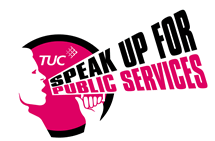 MYTH 3 Competition is the best way to improve public services
MYTH 3 Competition is the best way to improve public services
REALITY Public Services are too important to compete on price
The imposition of competition and markets in the public sector means driving a wedge between client and contractor roles and usually results in the restriction of in-house delivery. Local authorities, NHS Trusts and other public sector bodies are required to become ‘commissioning’ organisations, in effect to be a client and to contract the provision of services to outside organisations. Competition is therefore limited between private firms and consultants and cannot be said to be true competition.
Competition can be a powerful lever of economic innovation. But the public sector is not, nor should be subject to real competition. The allocation of resources in the public sector should never solely be about price – public services are too important. Public services reduce inequality, promote stability, and are the only proven way to promote economic, social, and environmental security.
As long as a service remains in the public sector it retains at least the potential to be directed by meeting the needs of the public. Once the private sector takes over this potential disappears, and is replaced by the priority of profit maximisation. Public services are subject to a regime of democratic accountability that embodies political choice and as such provides a different kind of scrutiny than anything that the market might deliver. Public services are an essential component of a good society. They carry with them intrinsic assumptions about equity, access and accountability; this is not the case in the market.
Privatisation and outsourcing often leads to services being fragmented, with overly complex structures which make collaboration and cooperation difficult. This slide to fragmentation means that Ministers and public sector managers lose control over the quality and delivery of services. They also lose control over the pay and conditions of workers delivering services. The 0PM study on outsourcing in the NHS found that it represents a “challenge to the lines of accountability due to the increasing complexity of outsourcing arrangements and diversity of approaches.”
The growth of competition also leads to increased transaction costs, linked to making and monitoring contracts, accounting, auditing, legal services, advertising and shareholders’ profits. Public sector resources are used in wide range of activities, from ’stimulating the market’ to encourage private and voluntary sector organisations bid for contracts, to tendering and performance management. There are also high costs associated with bidding for contracts, which can act as a barrier to market entry and creates economies of scale that favour large providers both in the private and voluntary sectors.
Competition all too often leads to a race to the bottom, with providers in all sectors racing to compete on costs. This inevitably hits the workforce in terms of pay and conditions, training and staffing levels. A study by TUPE by the Social Care Employers’ Consortium looked at the recruitment and retention of the third sector social care workforce and particularly contracting out from the public to the third sector.
It reported that, despite clear guidance that TUPE should apply to all transfers in an outsourcing situation, many local authorities still ask for a TUPE and non-TUPE price in their tenders. It states that ‘tenders, especially those which have a turnaround time of a few days, are costly to prepare and having to provide two separate bids doubles the cost of staff time.’ It goes on to describe the code of practice on the two-tier workforce, which was designed to ensure that in a transfer situation, new employees were treated equally to those of transferring staff. It states that the code is ‘often ignored by local authorities which are cost driven.’ It quotes one employer: ” We lost a contract because a local authority and a new supplier ignored the two-tier workforce regulations. Now we don t mention it unless the local authority does, which isn ‘t often. “7
Britain’s Homecare Scandal — BBC Panorama
“Care of the elderly is a lucrative industry after the doors were opened to private companies in the 1990s. Research from the London School of Economics, commissioned by Panorama, found that 70% of home care is provided by the independent sector today and is worth £1.5 billion. The figure was just 2% in 1992. English local authorities spend around £22 an hour providing elderly care, but the independent sector provides it for around half that.
Panorama went to South Lanarkshire in Scotland where an online auction decided the council’s new care provider. Domiciliary Care won the auction which saw bidders bidding down, not up. It’s one of Scotland’s largest care providers looking after more than 1,500 people. While it won with a bid to provide care for £9.95 an hour, South Lanarkshire says the decision to award the contract was based only 40% on price with 60% based on quality of care.”
www. news.bbc.co.uk/ panorama/hi/front_page/newsid_7990000/7990682.stm
Impact on the third sector
Supporting People Programme – evidence to the Communities and Local Government Committee
Supporting People is a government programme to fund, monitor and improve housing-related support services. The inquiry into the programme expressed concern about pressure placed on third sector organisations as local authorities focus too heavily on the cost of providing services, as opposed to considerations of quality. Evidence was provided by several charities and third sector organisations, including Refuge, a domestic violence charity, who compared “the search for the cheapest possible contract” to the approach a local authority would take to letting “a contract for pot holes or some other local authority service.” The subsequent impact of competitive tendering on small, often third sector, providers and their clients is considerable:
“[Competitive tendering impacts on] small, community-based care providers. Large organisations are much more able to compete for and win Supporting People services—by contracting out their own back-office functions, developing floating support services over large geographical areas, and benefiting from economies of scale. [...] the government’s own equalities agenda is being harmed. While the focus from government seems to be on the needs of local communities, the result of low-cost competition for care services is that specialist equalities groups rooted in communities will struggle. The Supporting People Programme – Communities and Local Government Committee, 2009
_____________________________
7 Social Care Employers’ Consortium, Social Care: Has Anything Changed?, 2008








Competition can be a powerful lever of economic innovation. But the public sector is not, nor should be subject to real competition.
I certainly don’t know the answer to this private public thing – I hope you do. Having worked in the public sector, I know it leads to “cushiness” and doing “just enough” and yet it leads also to consistency of service, i.e. you always know what you’re getting.
It is also employment and sustenance for civil servants and their families.
Applying private methods is silly, in my eyes, trying to be like little businesses and adopting the jargon such as “service delivery” and other guff like that. Slightly outside this are the railways. They’re not there to make a profit – they’re there to offer a service, consistently, day after day, come rain, hail or leaves on the line. That’s what people want from them.
If you’re going to make cuts in public services, you first of all create an infrastructure in the country where new businesses are springing up and need retrained workers, then you gradually release your public sector workers. Throwing them on the streets is not the way to go.
I believe that public services should remain public but they should be run efficiently and all those recent monitoring levels that have cropped up should be removed.
It is when I see what has happened to the railways that I wonder why other people think that public services would be better if they were privatised. When I go to some of the Trade Union meetings that discuss this I hear some terrible instances in other countries of what happens when public services are in private hands.
How does one introduce competition between things like streets, roads and drains?
If I don’t like my sewerage company, can I ask a competing company to build a separate sewer to my house?
All that competition produces in the public sector is wasteful duplication or privately owned monopolies, whose incentive to provide good service is overrules by the profit motive.
And the prices would go so high that people couldn’t afford them anyway.